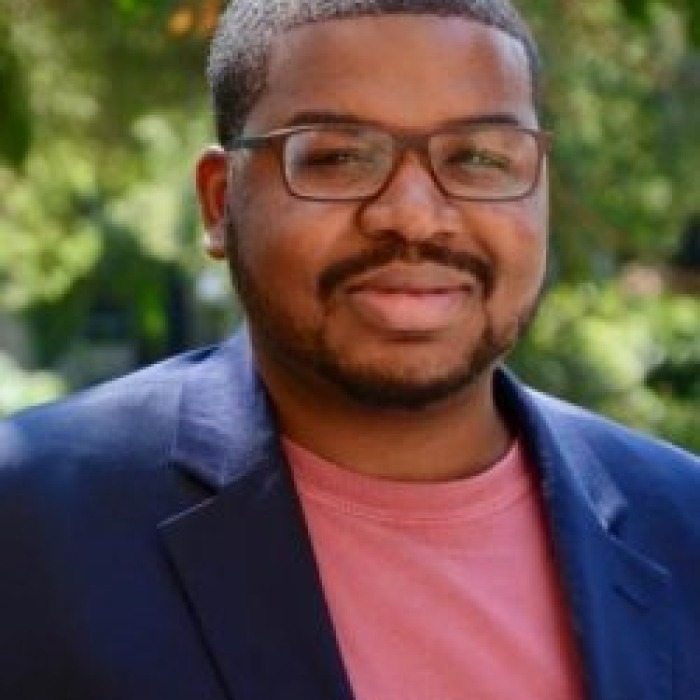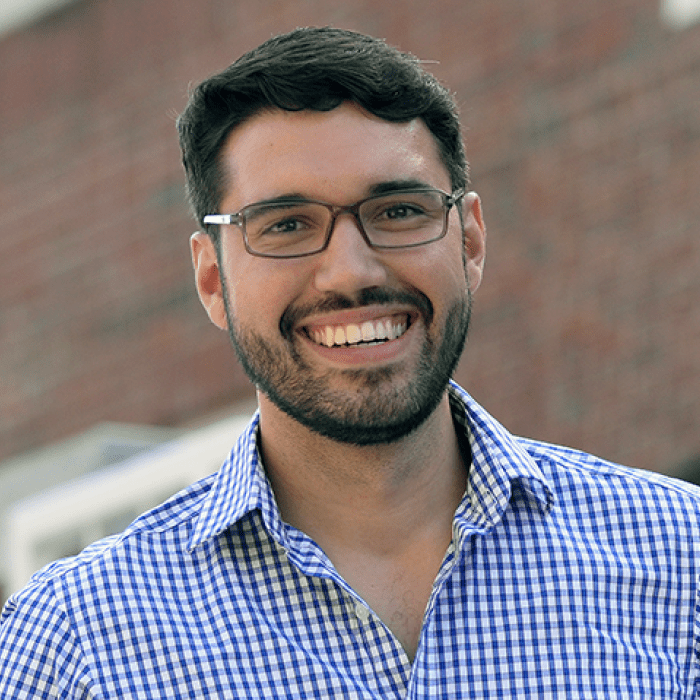
Keneshia Grant
Associate Professor, Howard University
Black Migration in American Politics: 1915-1965
Date and Time:
Thursday, October 1, 2020 12:00 PM to 1:00 PM
Virtual
Abstract/Description:
The author argues that the Great Migration changed how Democratic Party elites interacted with Black communities in northern cities. In particular the author argues that (1) Black Americans moved out of the South into the North, (2) that this migration changed Black citizens ability to participate in politics, and (3) this change in participation led Democratic Party leaders to conclude that Black Americans could help the Democratic Party achieve their electoral goals.

Matthew LaCombe
Assistant Professor, Barnard College
Firepower: How the NRA Turned Gun Owners into a Political Force
Date and Time:
Thursday, October 29, 2020 12:00 PM to 1:00 PM
Virtual
Abstract/Description:
This chapter documents the party-group alignment of the NRA and the GOP, detailing the constellation of factors that collectively facilitated this alignment. Building directly on chapters 3 and 4, it shows how the NRA’s cultivation of a group social identity and ideology laid a foundation for its eventual incorporation into the Republican coalition. The chapter also highlights the institutional conditions that catalyzed this process, including the changing incentives of both the NRA and GOP politicians. Finally, the chapter explores the intensification of the NRA’s relationship with the Republican Party over the past few decades, including its relationship with Donald Trump, and reflects on what the NRA case tells us about the nature of party coalitions.

Hakeem Jefferson
Assistant Professor, Stanford University
“You’re Making it Harder for the Rest of Us!”: In-group Policing and Perceptions of Collective Costs
Date and Time:
Friday, November 20, 2020 9:30 AM
Virtual
Abstract/Description:
In this workshop talk, I am eager to share some new work that builds on my efforts to understand the relationship between the politics of respectability, in-group policing, and Black Americans’ punitive attitudes (under review). In particular, I propose a new construct for consideration, “perceptions of collective costs”—the sense that in-group members’ behaviors have cascading consequences for the whole. For the first part of the talk, I will outline a new measure that I use to capture this construct, discuss its correlates, demonstrate its distinctiveness from other familiar constructs, and showcase how it matters in shaping in-group members’ attention and reaction to stereotype-confirming behavior. Following this discussion, I will present preliminary results from an experiment that examines the conditions under which collective cost concerns are activated. I will conclude with a discussion of the implications this work has for the study of identity and punishment in the United States and beyond.

Michelle Margolis
Associate Professor, University of Pennsylvania
Persecuted Christians? Understanding Evangelical Support for Trump
Date and Time:
Friday, January 22, 2021 9:30 AM
Virtual
Abstract/Description:
White evangelicals overwhelmingly supported Donald Trump in the 2016 election, producing extensive debate as to who evangelicals are, what it means to be an evangelical in the United States today, and whether the electoral results are surprising or not. This paper offers empirical clarity to this protracted discussion by asking and answering a series of questions related to Trump’s victory in general and his support from white evangelicals in particular. In doing so, the analyses show that the term “evangelical” has not become a synonym for conservative politics and that white evangelical support for Trump would be higher if public opinion scholars used a belief-centered definition of evangelicalism rather than relying on the more common classification strategies based on self-identification or religious denomination. These findings go against claims that nominal evangelicals, those who call themselves evangelicals but are not religious, make up the core of Trump’s support base. Moreover, high levels of electoral support among devout evangelicals is not unique to the 2016 election but is rather part of a broader trend of evangelical electoral behavior, even when faced with non-traditional Republican candidates. Finally, the paper explores why white evangelicals might support a candidate like Trump. The paper presents evidence that negative partisanship helps explain why devout evangelicals–despite Trump’s background and behaviors being cause for concern–coalesced around his presidential bid. Together, the findings from this paper help make sense of both the 2016 presidential election and evangelical public opinion, both separately and together.

Jaime Settle
Associate Professor, William & Mary
What Goes Without Saying: Navigating Political Discussion in America
Date and Time:
Friday, February 19, 2021 9:30 AM
Virtual
Abstract/Description:
Why, despite high rates of reported political discussion, do so many Americans dislike talking about politics? And how do the mixed considerations people hold about discussion affect the way that they communicate? We argue that we need to consider the psychological experience of political discussion as navigating a social process that is rife with potential challenges to our sense of self and our relationships with others. Variation in the cognitive resources of political conversation, such as interest or knowledge, or in instrumental goals related to learning and persuasion cannot fully explain people’s motivation to seek or avoid discussion, although considerations related to information certainly are part of the story. Discussion is an inherently social behavior, and we argue that without assessing the social factors influencing the decision to talk about politics, we can’t fully understand who talks about politics, with whom, under what conditions, and with what consequence.
This book is an effort to open the lid on the processes that lead up to a political discussion and the implications of the conversations that do happen. Our approach is to build on what we already know about political discussion, focusing on the gaps in our knowledge resulting from untested assumptions and limited methodologies in previous work. We apply new measurement techniques in order to better understand the decision-making processes that lead to the initiation of discussion, the nuances of the interactions that do occur, and the consequences of those conversations on a wide set of political and social outcomes.

Yamil Velez
Assistant Professor, Columbia University
The Political Consequences of Ethnically Targeted Incarceration: Evidence from Japanese-American Internment During WWII America
Date and Time:
Friday, March 19, 2021 9:30 AM
Virtual
Abstract/Description:
What are the downstream political consequences of state activity explicitly targeting an ethnic minority group? This question is well studied in the comparative context, but less is known about the effects of explicitly racist state activity in liberal democracies such as the United States. We investigate this question by looking at an important event in American history—the internment of people of Japanese ancestry during World War II. We find that Japanese Americans who were interned or had family who were interned are significantly less politically engaged and that these patterns of disengagement increase with internment length. Using an identification strategy leveraging quasi-random camp assignment, we also find that camp experience matters: those who went to camps that witnessed intragroup violence or strikes experienced sharper declines, suggesting that group fragmentation is an important mechanism of disengagement. Taken together, our findings contribute to a growing literature documenting the demobilizing effects of ethnically targeted detention and expand our understanding of these forces within the U.S.

Candis Watts Smith
Associate Professor, Penn State
Upcoming talk by
Date and Time:
Friday, April 23, 2021 9:30 AM
Virtual
The American Politics Seminar is a year-long speaker series that features leading scholars in American Politics. Invited scholars present cutting-edge research and engage in lively debate with faculty and graduate students. The seminar is made possible partially through a generous grant from the Bankard Fund for Political Economy at the University of Virginia. The Seminar is organized by Justin Kirkland. Papers are generally sent to invitees in the week or so prior to each talk.
Academic Year:
